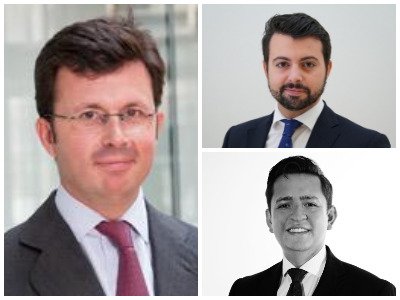Alfonso Merlos: “Recovery should not be announced but made”

Alfonso Merlos, a well-known expert in Legal Communication, talks to Iberian Lawyer about “Justice and Communication” and his current professional projects

At this point in history, saying that communication can be corrupted or manipulated is a truism. As an expert in communication and the legal sector, do you think that this manipulation or conditioning can affect important judicial processes? If so, would this be related to what Javier Cremades, a lawyer friend of yours, calls the distortion of the Rule of Law? In this regard, do you have any current examples of what we are talking about?
In no way do I believe that disinformation campaigns can condition, twist or break the decisions of the professionals who serve the Administration of Justice and the Rule of Law itself. It would be disturbing and dangerous. It is a different matter if there are investigations into new facts or approaches not considered in a procedure that, arising in parallel to the work and function carried out by judges and prosecutors, may make them reconsider aspects of the object on which they are pronouncing. And I do not think this is a bad sign at all. On the contrary, do not forget that controlling the powers of the state, also in the form of inquiry, is a primary mission of the press, and this includes, always with respect and truth, of course, the judiciary.
Regarding the second part, I am thinking, recently, of the wave of investigations, including judicial ones, launched against politicians for allegedly falsifying their Master’s degrees or other types of studies. An impression was created that these proceedings worked driven by newspaper headlines or television talk shows and, after a few months, everything was forgotten by public opinion. And that blinded way is, at least, a disconcerting image.
Professionally, apart from the media, you have always worked in institutional and corporate/private communication, mainly in sectors such as legal or financial, among others. What are the points in common that you find between both spheres? And the main differences? Which of the two has given you the most satisfaction?
I am passionate about good communication, and I consider it a tool at all levels (strategic, tactical and operational) to generate ‘business’ for a corporation. In a private entity, it is inevitably the profit and loss account. But in a public institution or even in an association, the contribution with another type of value is in the foreground. I have always enjoyed, in both cases, the two areas, law and business, so rich in so many ways. The first requires formidable and constant study, a great deal of technique, method and perseverance. The second one brings to the forefront other kinds of soft skills to make projects prosper and satisfy the interests of the clients.
In September 2020, you were appointed president of the Estrella Digital group, business consulting services, and currently, you are president of Mundo Financiero. What has the last period been like for you, professionally speaking? What other projects are you currently working on?
I have always understood, for more than twenty years, that my life in the field of communication had to pass through the media and, in parallel, through a company; to develop it to its full potential and in my entire vocation. The first level explains my time in television, radio stations and newspapers, and in groups such as El Mundo Financiero. In the second, there has always been an obligatory space of reserve, discretion and confidentiality, which are the rules that make the best results possible. And that will never change.
Among your clients, there are important law firms of different profiles. In your opinion, how has the Legal sector overcome (or is it overcoming) the pandemic episode? Can we already talk about recovery?
There is a paradoxical situation. On the one hand, there is considerable growth in the field of Insolvency and Second Chance, to cite a couple of examples. On the other hand, there is also an increase in all those branches of law that affect large investments, including in the real estate sector. But you always have to look at the medium and small firms. It is inevitable, and it is human. And here, there is a contradiction to be resolved between the increase in the number of cases that come to the firms, given the period of conflict that we are experiencing, and the economic difficulty for clients from the middle or less privileged classes to meet their payments. I believe that recovery should not be announced but made. We are on the way, and that way is alien to politics, which in any case is proving to be a burden.
Financial reality is increasingly linked to Legal information, or at least that is what we believe at Iberian Lawyer. What is your opinion?
There is no doubt about it. Law affects our whole life, even before we are born. My feeling, clearly, is that society itself perceives that there are business activities and operations, let alone financial ones, that are impossible to understand without understanding the regulatory framework in which they are projected and culminate. And, in the same way, an idea is spreading and becoming popular, and it is a good thing; that there are conflicts between top-level actors and firms, which are engaged with papers all day long, and which are impossible to interpret if not from a legal and judicial perspective.
You have an official account on Instagram with about 36 thousand followers and another one on Twitter with more than 58 thousand followers. You also keep your Linkedin and Facebook profiles updated. What do you think about the role of social networks nowadays?
They are the biggest revolution in the world of communication since the democratisation of the Internet. Their functions and even benefits are innumerable. But their challenges have to do with their darker side. From the business point of view, because they are giving the traditional media the lace to the crisis, they are going through. From the social point of view, because of the radical and fanatical positions and the climate of hate, sectarianism and destruction that they encourage. From the political, because of the risk that disinformation has as an element to adulterate, corrupt and even undermine the foundations of democracy which is, in essence, a regime of opinion that cannot be understood without the right to truthful information. And I am fully convinced of something that can already be glimpsed: in demanding and exclusive professional environments, social networks have an expiry date, their days are numbered.
By Desiré Vidal
Picture by Eduardo Rabadán
To read the full interview on issue number 109 click here.












